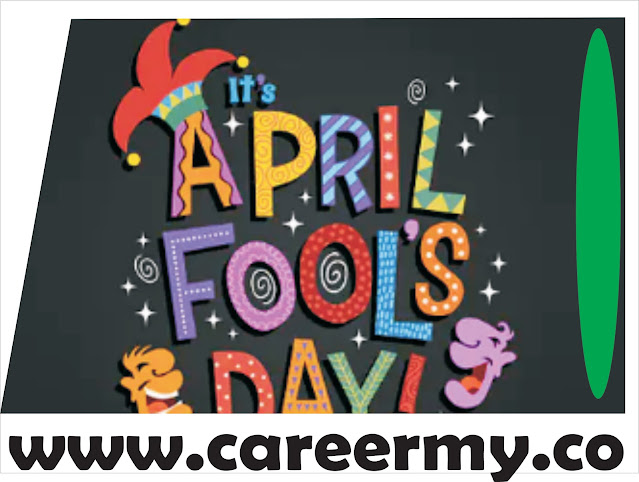What is April fools day all about
April 1st is widely known as
April Fools' Day, a day dedicated to playing practical jokes and pranks on
people. The origins of the day are uncertain, but it has been celebrated for
centuries in various cultures around the world. The tradition typically
involves playing harmless pranks, such as telling fake stories or setting up
practical jokes to fool friends, family, or colleagues. However, it is
important to remember that April Fools' pranks should be done in good fun and
not cause harm or distress to others.
April Fool's Day is a holiday celebrated on April 1st, during which people traditionally play practical jokes and pranks on each other. It is also sometimes referred to as All Fools' Day. The origins of the holiday are uncertain, but it is believed to have originated in Europe several centuries ago. Today, April Fool's Day is celebrated in many countries around the world, with people playing harmless pranks and jokes on their friends, family members, and coworkers. While the pranks can be silly or humorous, it is important to remember to keep them harmless and not to cause harm or distress to others.
16 interesting facts about April Fools ‘Day
The origins of April Fools' Day
are uncertain, but some historians believe it may have started in ancient Rome
or India.
In France, April Fools' Day is
called Poisson d'Avril, which means "April Fish." It is customary to
attach paper fish to people's backs without them noticing.
In Scotland, April Fools' Day is
celebrated for two days, on April 1st and 2nd, with pranks known as
"hunting the gowk."
The earliest recorded April
Fools' Day prank was played in 1698, when people were sent on a "fool's errand"
to the Tower of London to see the "washing of the lions."
In Iran, April Fools' Day is
celebrated on the 13th day of the Persian New Year, which falls in March or
April.
In the Netherlands, April Fools'
Day is celebrated on November 11th, and is called "Sint Maarten."
In many Spanish-speaking
countries, April Fools' Day is celebrated on December 28th, which is known as
Dia de los Santos Inocentes, or "Holy Innocents' Day."
In the 18th century, April Fools'
Day became popular in England, and people began playing elaborate practical
jokes on each other.
In some countries, including the
United States, the UK, and Australia, April Fools' Day pranks are only allowed
until noon. After that time, anyone who plays a prank is considered the
"April Fool."
The media often plays elaborate
April Fools' Day pranks, with newspapers and TV stations publishing fake
stories and news reports.
In 1957, the BBC ran a news story
about a "spaghetti tree" in Switzerland, which led many viewers to
believe that spaghetti grew on trees.
In 1974, a prankster placed a
large rubber ball in front of the Rolling Stones' tour bus, causing it to crash
and delaying the band's concert.
In 1998, Burger King ran an ad in
USA Today claiming that they had created a new item called the
"Left-Handed Whopper," which was designed for left-handed customers.
In 2016, Google introduced a
feature called "Mic Drop" on Gmail, which allowed users to send
emails with a GIF of a minion dropping a microphone. However, the feature
caused some users to accidentally send the GIF to important contacts, leading
to backlash and the feature being quickly removed.
In 2019, the National Trust in
the UK announced that they would be rebranding as the "National Toast
Trust," with a new logo featuring a slice of toast.
In 2020, many April Fools' Day pranks were cancelled or toned down due to the COVID-19 pandemic, as people were urged to be sensitive to the current situation.






0 Comments